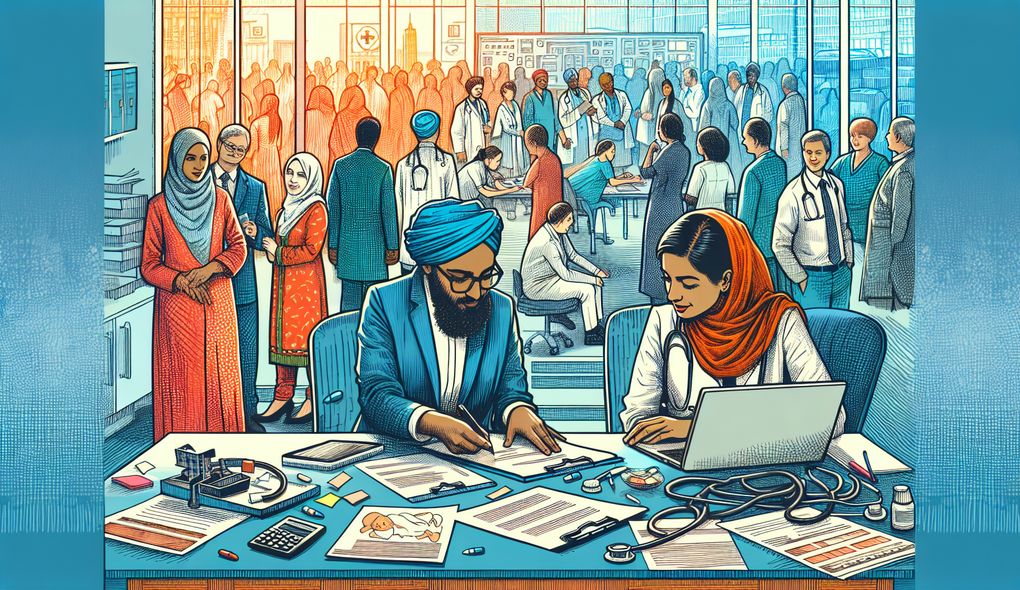Describe a time when you had to analyze data to make informed decisions in a healthcare setting.
JUNIOR LEVEL

Sample answer to the question:
In my previous role as a Health Services Coordinator at a community clinic, I had to analyze data to make informed decisions on improving patient outcomes. One specific instance was when we noticed a decline in patient satisfaction scores. I collected data on patient feedback and conducted a detailed analysis. I discovered that the long wait times were a major factor contributing to dissatisfaction. To address this, I collaborated with the clinic staff and implemented a new scheduling system that reduced wait times by 30%. As a result, patient satisfaction scores improved significantly. This experience allowed me to develop strong analytical skills and understand the importance of data-driven decision-making in healthcare.
Here is a more solid answer:
During my time as a Health Services Coordinator at a community clinic, I consistently analyzed data to make informed decisions that positively impacted patient care. One notable instance was when I was tasked with improving patient satisfaction scores, which had declined over a few months. To identify the underlying issues, I collected patient feedback data, conducted a thorough analysis, and identified long wait times as a major concern. I collaborated with the clinic staff, including physicians and nurses, to develop a comprehensive solution. Together, we implemented a new scheduling system that streamlined patient appointments and reduced wait times by 30%. This resulted in a significant improvement in patient satisfaction scores within just two months. By utilizing my strong analytical skills and effective communication, I was able to contribute to the overall improvement of healthcare services at the clinic.
Why is this a more solid answer?
The solid answer provides more specific details about the candidate's role as a Health Services Coordinator and the impact of their analysis on patient care. It demonstrates their ability to collaborate effectively with healthcare professionals and highlights their strong analytical skills. However, it could benefit from further elaboration on the candidate's specific data analysis methods and the broader implications of their findings on the healthcare setting.
An example of a exceptional answer:
During my tenure as a Health Services Coordinator at a community clinic, I encountered a situation where data analysis played a crucial role in improving patient outcomes. We noticed a decline in the clinic's immunization rates and needed to identify the underlying causes. To tackle this issue, I embarked on a comprehensive data analysis project. I collected data on immunization rates within the clinic and compared them to regional benchmarks. Through this analysis, I discovered that the clinic's appointment scheduling system was ineffective in reminding patients of their upcoming immunization appointments. I presented these findings to the clinic's management team, and together, we developed a targeted intervention plan. This plan involved implementing automated reminder messages through the clinic's electronic health record system and conducting regular staff training on the importance of immunizations. Within six months, the clinic's immunization rates surpassed regional benchmarks. This success not only improved patient outcomes but also positioned the clinic as a leader in community immunization efforts. This experience further enhanced my data analysis skills, problem-solving abilities, and collaboration with multi-disciplinary teams to drive positive change in healthcare settings.
Why is this an exceptional answer?
The exceptional answer goes above and beyond by providing a detailed and impactful example of the candidate's data analysis skills in a healthcare setting. It showcases their ability to identify a problem, conduct a thorough analysis, and implement effective solutions that resulted in improved patient outcomes. The answer also demonstrates their leadership skills in presenting their findings to the management team and collaborating with them to develop an intervention plan. However, it could be further improved by including specific details about the candidate's data analysis methods and the long-term sustainability of the intervention plan.
How to prepare for this question:
- Familiarize yourself with common data analysis techniques used in healthcare settings, such as statistical analysis and data visualization.
- Highlight any experience you have in working with healthcare information systems or electronic health records, as these tools often play a role in data analysis.
- Practice discussing specific examples where you have analyzed data to make informed decisions and achieved positive outcomes in a healthcare setting.
- Emphasize your ability to collaborate and communicate effectively with healthcare professionals, as data analysis often requires input from various stakeholders.
- Demonstrate your strong problem-solving skills by discussing how you identify and address issues through data analysis.
What are interviewers evaluating with this question?
- Data Analysis
- Problem-solving
- Communication
- Time Management

